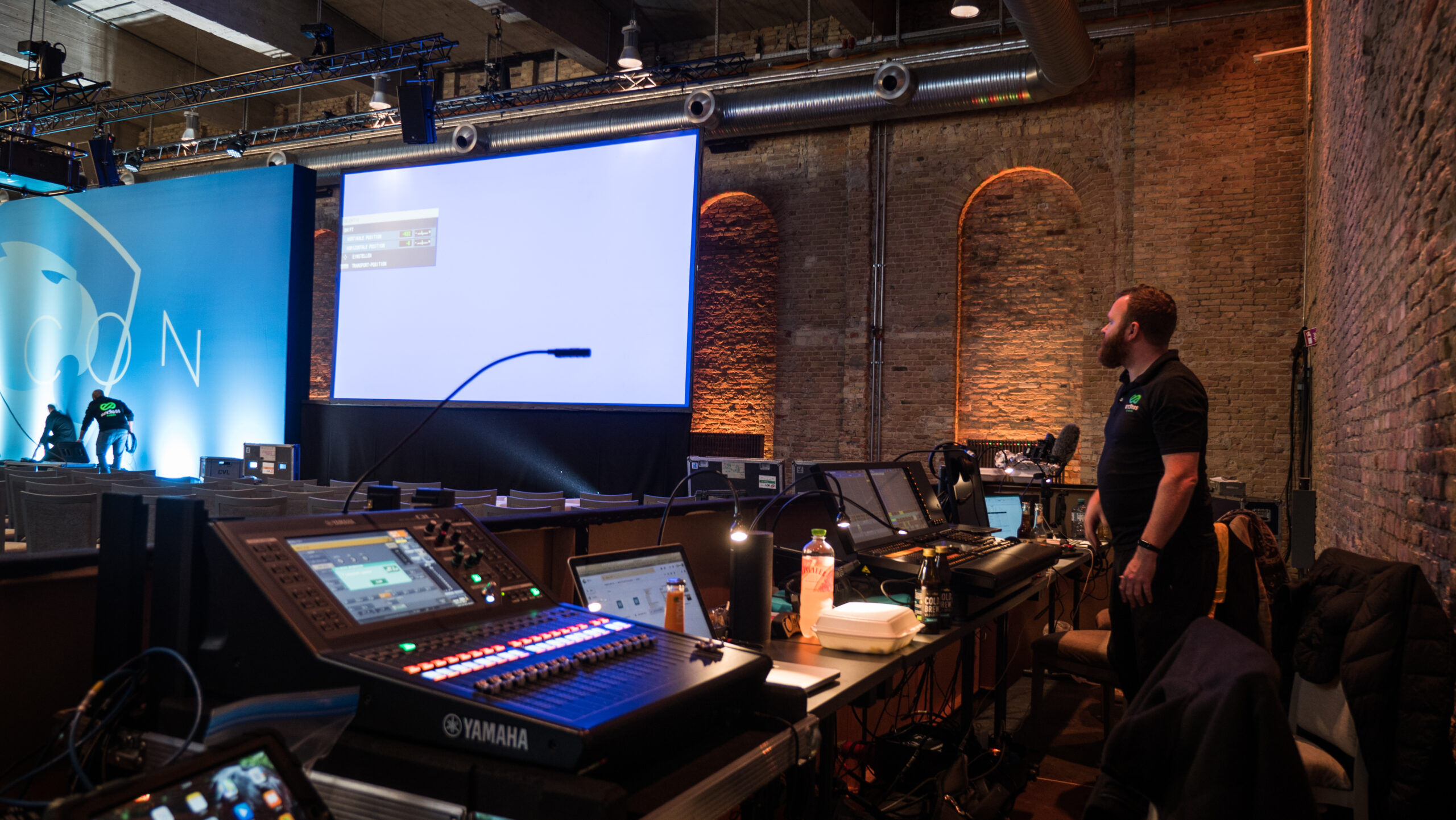Change Your Next Collecting with Specialist Event Productions Techniques
Change Your Next Collecting with Specialist Event Productions Techniques
Blog Article
Recognizing Just How Occasions Production Functions: A Comprehensive Summary of the Process
The intricacies of event production demand a methodical method that incorporates multiple phases, each playing an important duty in the general success of an event. Recognizing the subtleties of budgeting, source allowance, and on-site management is crucial for any kind of specialist in this field.
Initial Preparation and Concept Advancement
Effective first preparation and concept growth act as the structure for effective events manufacturing. This stage involves defining the occasion's objective, target audience, and wanted outcomes. A clear vision is crucial; it overviews all subsequent decisions and helps line up the team's efforts towards a typical goal.
During this phase, conceptualizing sessions can be vital. Engaging stakeholders, including clients, enrollers, and possible attendees, cultivates a collective atmosphere that produces cutting-edge ideas. In addition, detailed market research must be performed to understand patterns, preferences, and possible challenges.
When the idea is established, it is important to develop a detailed occasion outline. This synopsis should consist of the event's style, layout, and key activities. Establishing a timeline is equally essential, as it assists to handle target dates and tasks effectively.
Budgeting and Source Allocation
With a strong principle in position, interest needs to transform to budgeting and resource allowance, which are crucial parts in implementing the event effectively. A distinct budget functions as a roadmap, detailing all expected expenses and offered sources. It begins with recognizing taken care of and variable costs, consisting of place leasing, event catering, technology, staffing, and marketing. Each classification must be thoroughly determined to prevent overspending and to make sure that funds are assigned suitably.
Source appropriation entails appointing both human and financial sources to different tasks and parts of the occasion. Prioritization is key; essential components ought to obtain ample funding while less critical aspects may call for a more conventional strategy. Contingency preparation is crucial-- designating a section of the spending plan for unexpected costs can alleviate financial threats.
In enhancement, efficient interaction among group participants relating to spending plan restrictions cultivates cooperation and innovation. This advertises the responsible usage of resources and urges creative solutions to stay within spending plan. Inevitably, a strategic technique to budgeting and resource allotment lays the foundation for a successful event, making it possible for planners to concentrate on delivering a remarkable experience for attendees while keeping economic honesty.
Logistics and Sychronisation
Browsing the intricacies of logistics and sychronisation is important for the seamless implementation of any kind of event. This phase involves meticulous preparation and organization to make sure that all elements work in consistency. Secret components consist of place choice, transportation plans, and the scheduling of different tasks.
Effective logistics starts with a thorough evaluation of the place's restrictions and capabilities. This includes understanding the layout, gain access to factors, and offered sources. When the place is verified, transportation logistics must be developed, incorporating the activity of guests, devices, and products. Collaborating these components needs collaboration with suppliers, vendors, and transport services to make sure timely distributions and pick-ups.
Another vital facet is the growth of a thorough timeline that describes all logistical aspects leading up to the event. This timeline offers as a roadmap, outlining crucial landmarks and target dates for jobs such as tools setup, providing services, and audiovisual setups. Routine communication with all stakeholders is essential to address any kind of potential concerns proactively.
Execution and On-Site Monitoring
Effective execution and on-site management are important for changing careful plans right into reality throughout an event. This stage entails the smooth control of various aspects, making certain that every information aligns with the established vision. On-site supervisors play a pivotal role, serving as the central factor of communication amongst vendors, team, and stakeholders. Their ability to make real-time choices can significantly impact the occasion's success.
A well-defined schedule is crucial, functioning as a roadmap for all tasks. Event supervisors need to guarantee that setup happens promptly, sticking to timelines for sound checks, catering deliveries, and guest arrivals. Reliable analytical skills are additionally important; unexpected obstacles can occur, calling for quick reasoning and adaptability to preserve the occasion's flow.
This level of engagement not only boosts the general experience however additionally shows the expertise of the occasion team. Inevitably, effective implementation and on-site monitoring hinge on comprehensive prep work, reliable interaction, and a dedication to providing an outstanding occasion for all entailed.

Post-Event Examination and Responses
The conclusion of any type of event exists not only in its execution yet likewise in the complete examination that complies with. Post-event analysis is essential for establishing the general success of the event and identifying locations for enhancement. This procedure usually includes gathering responses from numerous stakeholders, consisting of attendees, suppliers, and group participants, to obtain a thorough perspective on their experiences.
To structure the evaluation, event organizers often use meetings and surveys, concentrating on crucial performance signs such as attendee complete satisfaction, logistical efficiency, and spending plan adherence. Examining this information enables coordinators to examine whether the occasion met its objectives and to recognize the strengths and weaknesses of the execution.
By methodically dealing with responses Check This Out and executing adjustments, occasion experts read this article can improve their methods, ultimately leading to more successful and impactful events. In conclusion, post-event examination is a vital action in the event manufacturing process that makes certain continuous development and excellence in future undertakings (Event Productions).
Final Thought

The intricacies of occasion production demand a systematic method that integrates several stages, each playing a crucial duty in the general success of an event.With a solid principle in location, interest must turn to budgeting and source allocation, which are crucial parts in performing the event efficiently.Resource allotment includes appointing both financial and human sources to numerous jobs and components of the event. Inevitably, a strategic approach to budgeting and resource allowance lays the foundation for an effective occasion, enabling planners to focus on providing a remarkable experience for participants while maintaining financial integrity.

Report this page